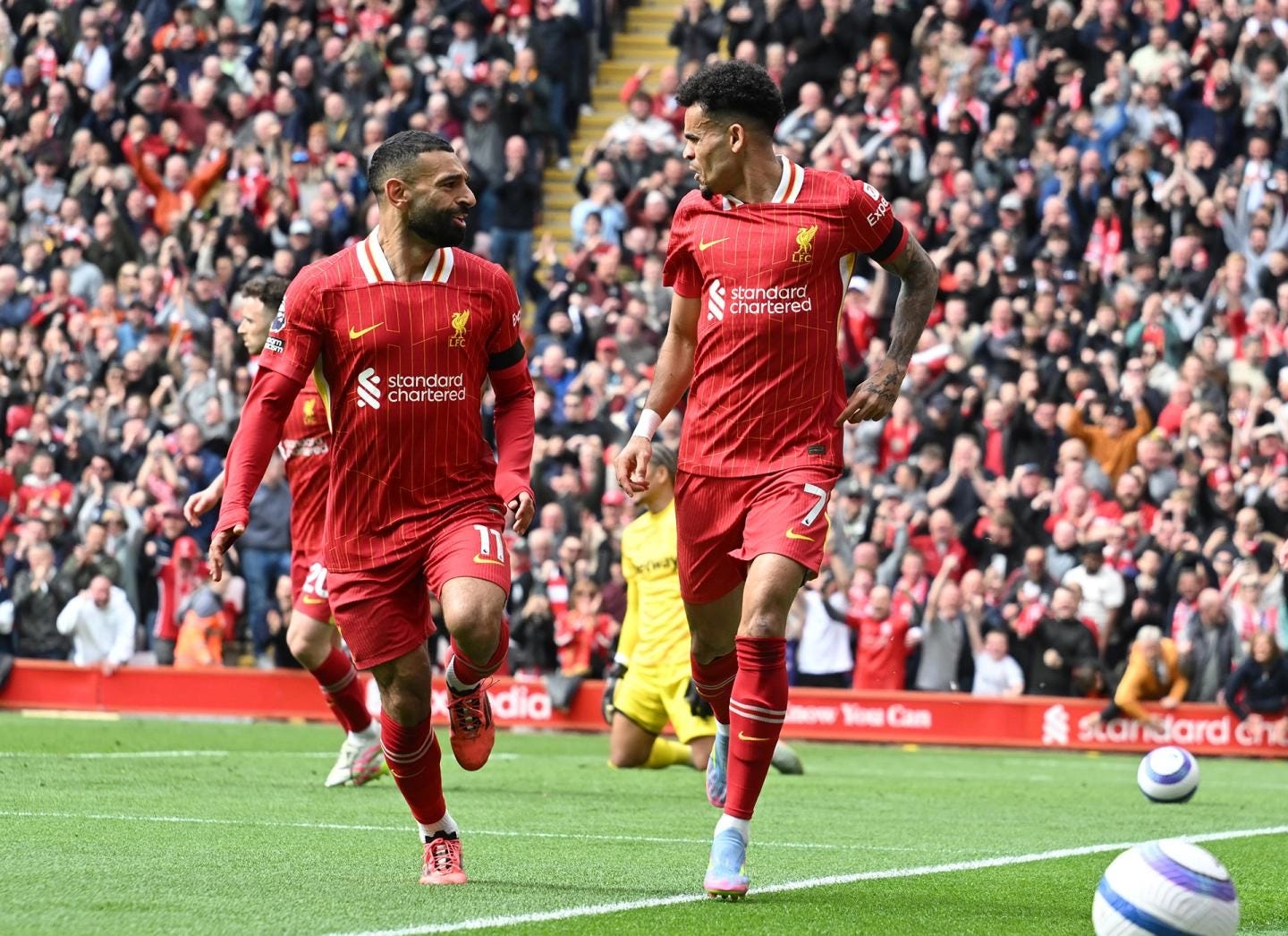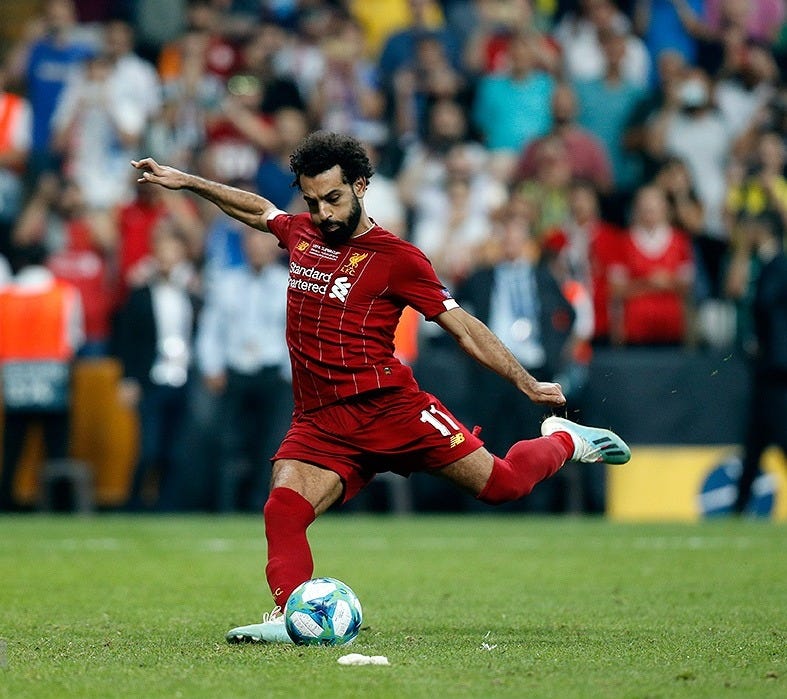Sports Review: Mohamed Salah, The Egyptian King
From Nagrig to Anfield, the story of a true sports hero
Estimated read time is 4 minutes — enjoy!
It’s hard to overstate what it means to fans like me to see Mohamed Salah sign a new contract with Liverpool—the club I follow with something close to religious fervor. If you don’t follow football (not the American kind—the global kind), you may not have heard his name. But even if you’ve never watched a minute of the Premier League, you should know who he is. His story is extraordinary—and his impact reaches far beyond the pitch.
Salah grew up in a small rural village in Egypt called Nagrig, a world away from the glittering stadiums of European football. As a teenager, he took four to five buses—spending more than four hours each way—to reach Al Mokawloon’s training grounds in Cairo. He did this daily. For years. It speaks to the quiet, relentless dedication of a man who had nothing handed to him.
His talent eventually earned him a move to Europe, beginning with a stint at FC Basel in Switzerland, where he impressed in both domestic and European competitions. That success led to a transfer to Chelsea, a major English club then coached by the legendary José Mourinho. But his time there was rocky—he struggled for minutes, and Mourinho quickly sent him out on loan. For many players, that might have been the end of the story. But Salah rebuilt himself in Italy, first at Fiorentina and then at Roma, where he regained his confidence and form. And then, in 2017, he made the fateful decision to join Liverpool.
That’s when everything changed. He was joining one of the most storied clubs in the world—Liverpool, winners of 18 league titles and five European Cups. (One thing to know about these football clubs: they can compete in as many as four or five different tournaments in a single season, from the league to domestic, continental, and even global ‘cup’ competitions.) But despite its history, the team had been struggling—particularly in the league—for decades. Salah would be playing under the newly arrived German manager Jürgen Klopp, and together with players like Virgil van Dijk (Dutch), Alisson Becker (Brazilian), Sadio Mané (Senegalese), Roberto Firmino (Brazilian), and others, they would go on to storm the world.
But since joining the club, no one has been as important as Salah. He has become one of the best players in Premier League history—perhaps even the greatest. He scores and assists at a staggering rate. He’s won every major team trophy: the league title (number 19!), the Champions League (number six!), multiple domestic cups, and the Club World Cup. He’s led the league in scoring three times, broken too many records to count, and made defenders miserable for eight straight seasons. He’s the kind of player who changes games—and delivers trophies.
But Salah’s importance isn’t just in what he’s done. It’s in who he is. He’s a devout Muslim who prays before every match and thanks God by kneeling and kissing the pitch after scoring. He fasts during Ramadan, even when playing at the highest level. And he does it all with joy, humility, and grace. In a city like Liverpool—working-class, skeptical of elites, and still recovering from the economic wreckage of the Thatcher era—he has become a beloved figure. They see him as an underdog who made good—just like themselves.
And in the post-9/11 era, he’s helped change minds about Islam. A study conducted by researchers at Stanford University found that hate crimes against Muslims dropped significantly in the Liverpool area after Salah’s arrival. One person can’t fix everything—but he has certainly helped people see one another differently.
Last week, amid longstanding speculation that he might leave for a massive payday in Saudi Arabia, Mohamed Salah signed a new two-year contract. At 32—somewhat old for a winger—he’s having possibly his best-ever season. He didn’t have to stay. But he did. And fans like me are deeply relieved. Even more so, apparently, is his daughter Makka, now 11 years old, who has grown up on Merseyside and proudly considers herself a young Scouser.
Sports don’t always give us heroes. But every now and then, someone comes along who combines brilliance with goodness—who changes games and minds at the same time. Salah has brought me immense joy over the past eight years. And now, we get a little more of it.
Lately, I find myself randomly humming his song:
Mo Salah! Mo Salah! Running down the wing.
Salah la la la la la la... The Egyptian King!
COMING NEXT MONDAY: we’ll begin a three-week series exploring the evolution of America’s political party system—helping us better understand where we’ve been, and where we may need to go.





